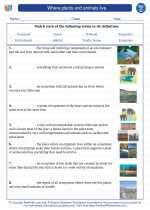What are Life Processes?
Life processes are the activities that living organisms carry out to sustain life. These processes include nutrition, respiration, excretion, transportation, and reproduction.
Nutrition
Nutrition is the process by which organisms obtain and utilize nutrients for energy, growth, and repair. It involves ingestion, digestion, absorption, and assimilation of food.
Respiration
Respiration is the process of releasing energy from food. In this process, organisms take in oxygen and release carbon dioxide as a byproduct. Cellular respiration occurs within the cells of organisms to produce energy in the form of ATP (adenosine triphosphate).
Excretion
Excretion is the removal of waste products produced by the metabolic activities of organisms. This process helps in maintaining the internal environment of the organism by eliminating harmful waste materials.
Transportation
Transportation refers to the movement of substances such as nutrients, gases, and waste products within the organism. In multicellular organisms, this process involves the circulatory system, which facilitates the transport of essential substances to and from cells.
Reproduction
Reproduction is the process by which organisms produce offspring. It ensures the continuation of the species. There are two types of reproduction: asexual and sexual reproduction.
Key Points to Remember
- Life processes are essential for the survival and growth of living organisms.
- The main life processes include nutrition, respiration, excretion, transportation, and reproduction.
- Each life process plays a vital role in maintaining the balance and functioning of an organism's body.
◂Science Worksheets and Study Guides Third Grade. Where plants and animals live
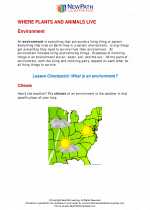
 Worksheet/Answer key
Worksheet/Answer key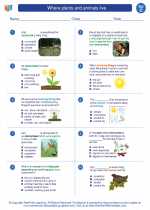
 Worksheet/Answer key
Worksheet/Answer key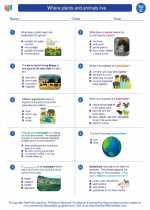
 Worksheet/Answer key
Worksheet/Answer key
 Vocabulary/Answer key
Vocabulary/Answer key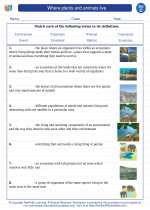
 Vocabulary/Answer key
Vocabulary/Answer key